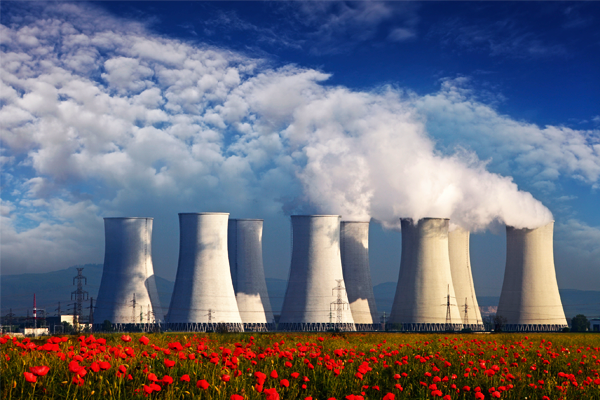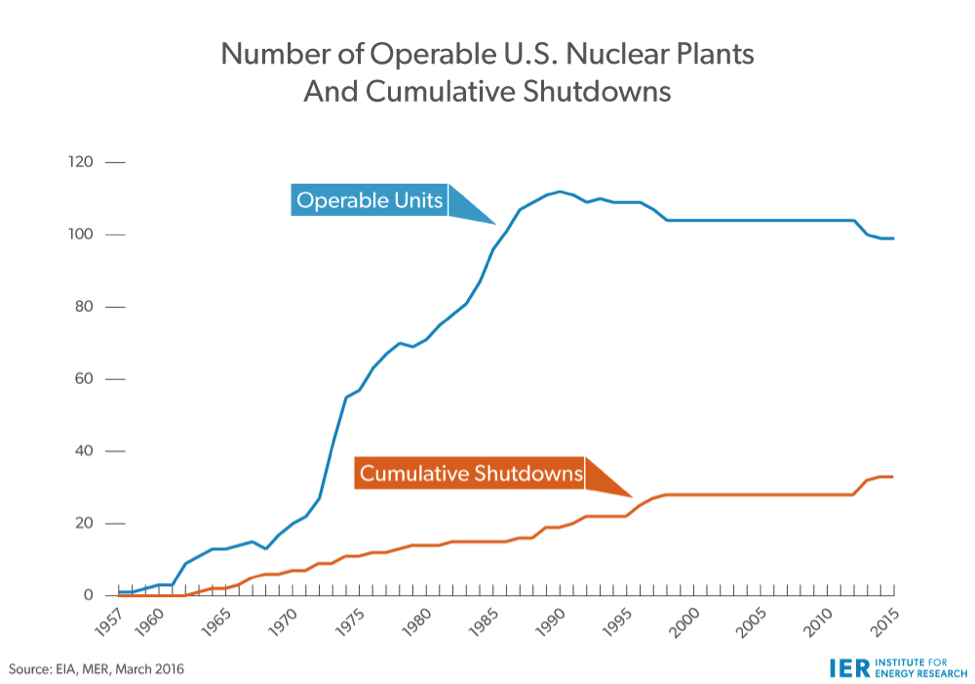House Bill Signals New Life for Nuclear Energy

Nuclear energy has provided Americans with safe, reliable power for decades. In recent years, new technologies have opened the door to more advanced reactors. However, the current licensing process for nuclear facilities remains burdensome and lengthy, and there is currently no path for advanced nuclear technologies to gain approval at the Nuclear Regulatory Commission.
Fortunately, Congress is taking steps to address this impasse for advanced nuclear technology. Reps. Latta and McNearny introduced H.R. 4979, the Advanced Nuclear Technology Development Act, to reform policies surrounding the licensing process by asking the Department of Energy and the Nuclear Regulatory Commission to coordinate efforts and map out a path forward for advanced nuclear technology. This bill provides a good first step in improving the regulatory framework for nuclear power and improving access to reliable, low-emission power for decades to come.
Nuclear power has long supplied the U.S. with dependable baseload electricity. However, the current fleet is aging and facing a number of retirements due to license expiration. Currently, 99 units operate in 31 states across the country. These reactors provide 20 percent of the nation’s electricity and 8.5 percent of our total energy. Yet nearly one third of the fleet could be retired in the next 15-20 years.
There is no question that the future is darker without nuclear energy. Nuclear energy is distinctly advantageous due to its dispatchability, reliability, safety, and lack of emissions. New reactor designs not only provide baseload power, as current designs do, but may also be able to follow load and actively balance power demand and supply. Yet building a new plant requires extensive licensing and regulatory approval, often making such endeavors uncertain and cost-prohibitive. Thus, as the nation requires more and more reliable power–especially to replace the dozens of gigawatts of coal-fired capacity that have retired in recent years–nuclear energy faces the dim prospect of being left out of the generation mix.
H.R. 4979 recognizes the benefits of nuclear power in America’s energy future and seeks to ensure that it is not left behind due to regulatory inefficiencies. First, the bill notes the importance of nuclear energy, including advanced reactors, to America’s power mix. This affirmation by Congress is important, given the recent mischaracterization of nuclear energy by some in the energy sector. Take the case of the Vermont Yankee nuclear plant, which closed in 2014. The plant provided New England with reliable, emissions-free energy for over four decades. Attempting to replace the 604 megawatts of energy lost from Vermont Yankee with new wind and solar will be impossible, as nuclear energy is fully dispatchable: wind and solar are not. Congress understands this reality and says as much in the bill.
Most importantly, the bill begins the process of reworking the framework for advanced nuclear reactor licensing. It requires the Nuclear Regulatory Commission to formulate a plan for “developing an efficient, risk-informed, technology-neutral framework for advanced reactor licensing.” This would set the U.S. on a path of regulatory reform that should result in streamlined and more efficient licensing for advanced nuclear reactors. Further, the bill will allow for increased cooperation between the nuclear energy industry and regulators, thus increasing stakeholder input in the hopes of establishing a coherent and agreeable licensing framework for the next generation of nuclear power.
There is still a long road ahead for nuclear regulatory reform. While H.R. 4979 does not immediately remedy issues in the current licensing and approval process, the bill is an important step forward and gets the ball rolling towards much needed regulatory reform in nuclear energy.

